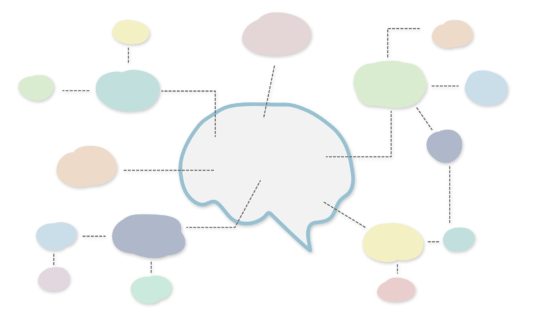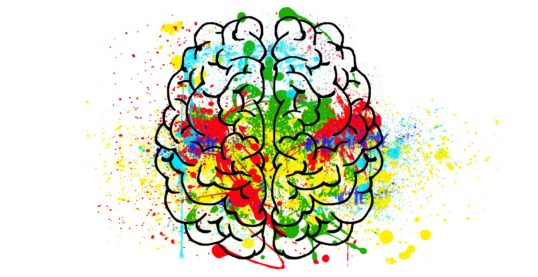Relationship Issues
Understanding & Treating Relational Difficulties
By Dr. Johnathon Neda, Orange County Relationship Issues Psychologist in Costa Mesa-Newport Beach.
How to Heal Relational Wounds, Stop Recurring Struggles & Improve Relationships
Whether you are currently navigating the dating world, are in a long-term commitment, or experience complicated family relationships, I provide professional counseling that can enrich all of your relationships. I also offer effective attachment-based psychotherapy that helps clients to form a new internal blueprint for secure emotional attachment. The development of a new internal map for adult intimacy can actually transform the way you experience close relationships. Utilizing a relational approach to therapy can also help you understand and change the specific patterns of thought/emotion/behavior that repeatedly plays out in dysfunctional relationship patterns. We can help you begin to manifest the behavior that will move you closer to what you want and what you need.
%
ABOUT 1 OUT OF 2 People come to therapy to resolve relational issues
How Attachment Styles are Expressed
Dismissing
Attachment in adults▪️ Is usually the distancer in the relationship
▪️ Dodges affection, is reserved or indifferent with significant others
▪️ Maintains a sense of disconnection
▪️ Is reluctant to count on others
▪️ Struggles in establishing deep connections with others
▪️ Fears becoming enmeshed or fused with their significant other
▪️ Discounts the value of feelings and (as a result) is remote or emotionally unavailable in relationships
▪️ Feels a false sense of accomplishment, independence, and identity development
▪️ Is disconnected from their own needs or desires and (as a result) becomes somewhat of an aimless dabbler in life
▪️ Acts self-contained as if they don’t need others
Anxious Preoccupied
Attachment in adults▪️ Is often the pursuer in a relationship
▪️ Because they actively pursue their own needs, they can come off as overly clingy
▪️ Is overly anxious about relationships
▪️ Is fearful that their significant other won’t be equally emotionally invested in the relationship
▪️ Has a neurotic need for acceptance and validation
▪️ Overlooks areas of conflict with their partner
▪️ Is often nervous about the possibility of being deserted by their partner
▪️ They can unwittingly (and paradoxically) be connection-seeking distancers
▪️ Constantly puts the needs and desires of others before their own
▪️ Is scared of being on their own
▪️ Their feelings of insecurity often leads to acts or displays of desperation
▪️ Confuses emotional hunger with true love
▪️ Lacks a strong sense of who they are and see their partner as completing them
Disorganized
Attachment in adults▪️ Early attachment figure was also someone to be feared
▪️ Is often emotionally labile
▪️ Has difficulty with self-soothing and struggles in utilizing a helpful witness to co-regulate
▪️ Feels very alone
▪️ Doesn’t really venture out and take in the world
▪️ Has a hard time trusting and depending on others
▪️ Oscillates from one attachment strategy to its polar opposite
▪️ Simultaneously seeks closeness yet pulls away from a sense of connectedness, which protects them from painful rejection
▪️ Has difficulty in both forming and sustaining relationships
▪️ Is often out of touch with their internal state of mind
▪️ Often experiences a mismatch between a sense of self and coherence of feelings (e.g., being overly trusting and suddenly suspicious)
▪️ Has a fragmented sense of identity
▪️ Struggles with initiating projects and following them through to completion
▪️ Lacks a sense of having a firm place to stand
Secure
Attachment in adults▪️ Displays an even ratio of bonding and exploratory behaviors
▪️ Exhibits interdependence & feels at ease with intimacy
▪️ Reaches out to their partner for soothing and reassurance when in emotional distress
▪️ Experiences a restorative solitude when alone in undistracted spaces
▪️ Feels largely whole and integrated within themselves
▪️ Are good at self-monitoring and can take on the perspective of others
▪️ Are able to reasonably depend on their partners
▪️ Are openly expressive about how they feel
▪️ Don’t make disparaging remarks about adult intimacy
▪️ Appreciate bonding and connectedness
%
Dismissing attachment style
%
ANXIOUS-pREOCCUPIED attachment style
%
DISORGANIZED attachment PATTERN
%
Secure attachment style
How to Change Unproductive Relationship Patterns & Increase your Capacity for Intimacy.
By Dr. Johnathon Neda, Orange County Attachment-Based Psychologist in Costa Mesa-Newport Beach for Relationship Problems.

Attachment-Based Psychotherapy
Many clients seek therapy to address a primary concern with their ability to form lasting and gratifying intimate relationships. I offer specialized help in this area. Upon assessment of the presenting relational issues, a unique therapeutic approach is tailor-made to each client. To ensure a goodness-of-fit, the set of interventions are always modified to accomodate the particular client’s needs.
While some of us have difficulties within relationships, some of us have difficulties with relationships—in other words, many adults didn’t get the nurturing they needed (from their early attachment figures) as children.
The Impact of Infant Attachment on Intimate Adult Relationships
In adulthood, the attachment bond has to do with the quality of emotional connection in close relationships and is evidenced by relatively stable patterns of relational behavior. Understanding your attachment pattern is important because your internalized map for emotional connection can heavily influence the selection of intimate relationships.
The development of these relational templates or maps are well in place around 2 years of age and have a 75% chance of persisting throughout the life cycle. This means that one’s perpetual style of attachment will continue to unfold in adult relationships (for 3 out of 4 people).


Neuroplasticity and the Development of a New Internal Blueprint for Emotional Connection
The good news is that one’s mental framework for adult intimate relationships can be positively reshaped to specifically include the main functions of attachment in adult intimacy. This reshaping is achieved through the use of a series of guided meditations* in the context of a deeply relaxed state of consciousness, characterized by vivid mental content and imagery.
That is, depending on the nature of your attachment style, my method of treatment may include facilitating the development of a new internal representation or template of [secure] attachment. This adjunctive technique to psychotherapy produces a fresh (and less restrained) map of intimacy that clients can operate out of in lieu of their old template.
You Can’t Change the Past but you Don’t Have to Re-Live it
This treatment can free up the availability of many resources that clients can draw upon as they begin to select secure intimate partners and sustain satisfactory relationships where they: (i) feel safe and protected; (ii) are carefully attuned to (emotionally); (iii) are provided comfort and reassurance when in (emotional) distress; (iv) feel cared for, loved, and prized; and (v) are encouraged and supported to become who they are in all of their potentialities.


Conflictual Relational Themes
As the restricting effects rooted in the formative experiences with early attachment figures are addressed, clients rediscover fresh ways of behaving in relationships. They become more effective in their interpersonal exchanges.
In addressing a particular set of issues within a current relationship, skillful use of the therapeutic working alliance facilitates the change process via the assessment and treatment of core conflictual relational themes. Offering the client experiential feedback regarding the underlying consistent patterns of relational behavior that manifest in the client-therapist relationship largely carries this out. In other words, relational schemas get reactivated and replayed in the actual encounter between client and therapist.
Promotion of Relational Functioning, Emotional Healing, and Personal Growth
We often repeat our past relational patterns with people we’re intimately in contact with now, but in therapy you can foster an opportunity to safely work through and diminish dysfunctional or unhelpful patterns as they emerge. In the therapeutic encounter, the psychologist is in a position to provide an emotionally corrective stance to the client. In other words, by setting the intention to use the clinical relationship as a vehicle for positive change, psychotherapy has the power to change the nature of one’s attachment style. This is carried out by the clients’ use of the psychologist as a trusted companion and secure base for engaging in experiential self-exploration within the relational encounter. Clients generalize this learning by applying it outside of the therapy setting.
In bringing this section to a close, attachment-informed treatment promotes relational functioning, emotional healing, and personal growth. A satisfactory level of security, attunement, hope, support, and ethic of care in the clinical relationship can be especially relevant for those suffering with attachment disturbances.


*Guided Imagery
Skillful use of Guided Meditation and Imagery can be quite effective in terms of healing attachment related disturbances. This is because attempting to increase awareness of how attachment behaviors are unconsciously enacted in the context of therapy (e.g., by looking at transferential material) can be tricky due to the fact that internal representations of attachment develop prior to the formation of narrative memory. In other words, it has to do with behavioral memory, which is body-based. This means it’s stored in a place where words fall short and therefore isn’t easily grasped at an intellectual or cognitive level. Therefore, the cultivation of experiential or embodied awareness must be facilitated in order to reach that deeper level of self-understanding.
Adult Attachment Patterns
If you would like a general idea of what your underlying central themes or patterns of relational behavior are, then Fraley, Waller, and Brennan (2000) offer an online (self-report) measure of attachment styles in close relationships. It generates a useful graph that automatically plots your scores. However, for a more accurate measurement, the Adult Attachment Interview (AAI) is considered the gold standard of assessment.
%
In Western Cultures, 1 in 3 People have some form of Insecure Attachment Style
%

